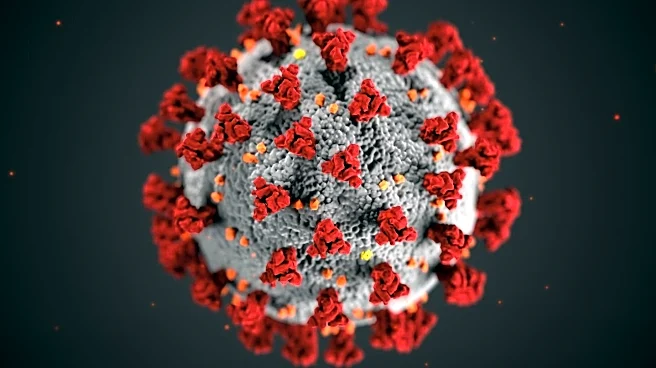What's Happening?
A study published in Nature reveals that Epstein-Barr virus (EBV) infection expands a specific subset of B cells that migrate to the central nervous system (CNS) and organize clusters of activated T cells. This discovery provides a mechanistic link between
EBV infection and multiple sclerosis (MS), suggesting that interfering with chemokine-guided B-cell positioning could be a therapeutic strategy to reduce neuroinflammation. The research utilized humanized mice and various advanced techniques to demonstrate how EBV-infected B cells gain CNS access and recruit pathogenic T cells.
Why It's Important?
The study offers new insights into the role of EBV in MS, a chronic autoimmune disease affecting the CNS. By identifying the pathways through which EBV-infected B cells contribute to neuroinflammation, the research opens up potential avenues for developing targeted therapies. These could include B-cell depletion or blocking chemokine pathways to prevent the migration of harmful B cells to the CNS, potentially reducing the progression of MS.
What's Next?
The researchers plan to explore combination therapies that include B-cell depletion and chemokine pathway inhibition to enhance treatment efficacy. They also aim to further investigate the role of EBV in MS and other autoimmune diseases, potentially leading to new diagnostic and therapeutic approaches. Longitudinal studies are needed to understand the long-term effects of these interventions on MS progression.
Beyond the Headlines
The study highlights the importance of understanding the positional dynamics of B cells in autoimmune diseases. By focusing on the chemokine-guided positioning of B cells, researchers can develop more precise interventions that target the root causes of neuroinflammation. This approach could lead to more effective treatments for MS and other conditions linked to EBV.














